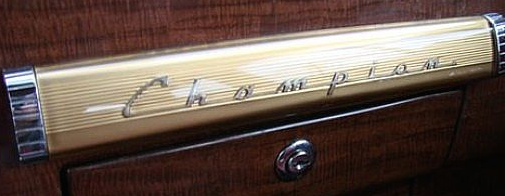
It only takes a sentence to enter the Awards! Get transforming, using these simple steps. | Photo by Julie North on Unsplash
Have you ever wondered what it would be like to enter an awards competition? The award for Best Plain English Sentence Transformation makes entering the Plain English Awards as simple as 1 – 2 – 3!
1. First, catch your sentence
Complex, long-winded sentences abound in official publications, on business websites, and around the office.
To find a suitable sentence, first of all, track down something that’s really long with multiple clauses, that maybe even includes more than one main idea, and also uses unnecessary, surplus words and phrases and convoluted language, which nevertheless might be regarded by some as adding a certain element of essential formality. See what we did there?
2. Rewrite your sentence in plain English
Rewrite your sentence in plain English so that it becomes simple and beautifully crafted. Keep your sentence short. If needed, you can use more than one sentence to express the ideas of your original text.
3. Enter your sentence in the award for Best Plain English Sentence Transformation
Enter your original and rewrite in the category that gives well-written sentences the attention they deserve. You can enter up to three sentence transformations in one entry. And feel free to enter more than once!
Enter the Best Plain English Sentence Transformation award
Meet a previous Best Sentence winner
Meet a Best Sentence finalist
Meet another Best Sentence finalist
Anne-Marie Chisnall August 29th, 2018
Posted In: 2018 Plain English Awards
Tags: 2018 Plain English Awards, Best Plain English Sentence Transformation, clear communication, entry, recognition, sentence, transformation

So often we hear stories about the people behind a plain English initiative in an organisation. To make sure these people get their own time to shine, we’ve got a Champion award — for the Best Individual or Team.
These sometimes unsung heroes are those who’ve worked hard to make plain English a reality in their organisation.
Are you a plain English hero in your organisation? Here are a few signs that you need to enter for Best Individual or Team — of course, we know you’ll be able to think of many more!
You’ve talked to your leaders about the need for a plain English project
You’re the one who went to the management or board meeting and talked about all the good reasons for starting a plain English project (large or small).
Or maybe your team got the project started, and took proof of the benefits to management to advocate for wider adoption of plain English throughout the organisation.
If you’re a plain English leader, we recommend you enter and get industry-wide recognition.
You’ve trained your colleagues in plain English
Not content to be the only plain English writer in your team or business, you’ve created a programme of training. You’re spreading the word about the advantages of plain English and giving your colleagues tools and techniques to help them write more clearly.
Perhaps you make sure you include a slot at team meetings on plain English tips — and that slot has become the highlight of the meetings.
Or are you the go-to person or team that is consulted before a major report goes out or content is loaded on the website?
If you’ve become indispensable as guide or mentor for people who want to write clearly, it’s time to get that entry in.
You’ve produced resources to support clear writing
You’ve compiled all you know into a resource for your organisation — a writing how-to, or brand guidance on clear writing. You’ve created intranet resources and newsletter articles to help build a culture of clear communication.
Or perhaps you decided those terrible templates had to go. You’ve restructured, rewritten, and rebuilt templates to make standard communications easier to produce — and easier for the target audience to receive and understand.
Sometimes this background work needs to be brought to the fore — enter the Champion category and let your light shine!
Read about last year’s winner
Find out if your organisation is a contender for the Best Organisation category
Enter the Awards
Anne-Marie Chisnall August 27th, 2018
Posted In: 2018 Plain English Awards
Tags: 2018 Plain English Awards, Best Individual or Team, Champion, Finalists, Industry awards, recognition, winners

Ever had that 'feel good' feeling from transforming a piece of text into really clear, readable content?
It’s 10am on a workday morning and a bunch of us are, accidentally and animatedly, tweaking some text on a neglected webpage we administer. ‘Too long!’ ‘It’s so long-winded.’ ‘Uggh, it sounds stodgy and dull’. ‘Look at that next sentence – why, just why?’
We’d intended to check on only a small detail but quickly ended up editing with a passion. Honestly, we didn’t mean to! But, oh, the satisfaction at the glorious transformation. It felt good. Very, very good! The world was now a better place. Instructions were clear. Readers would breeze through it. Job done!
If you too get a happy burst of dopamine from turning around bad writing, you’ll totally get this and probably be nodding in agreement. And if you’ve been on top of the world after some of your own transformations, you’d better share! Enter them in the Turnaround category of the annual Plain English Awards
We’ll be cheering you on, every step of the way!
The Turnaround award recognises the best plain English rewrite of a document or website that was originally difficult to read.
Lynda Harris August 24th, 2018
Posted In: 2018 Plain English Awards
Tags: 2018 Plain English Awards, benchmark, Industry awards, plain language, recognition, transformation, Turnaround Award

Does your organisation's writing rise above the rest? Image by Andreas Weiland. Unsplash licence.
Have you got what it takes to be a Plain English Champion? This year we have two Champion categories: the Best Organisation and the Best Individual or Team.
Here are five clues to help you decide if it’s your organisation’s time to shine. We’re sure you can think of many more!
1. Your organisation champions and celebrates clear communication
Clear communication is something your organisation values and rewards. Your leadership team walks the talk, promoting the benefits of clear communication throughout the organisation.
Internal documents, such as brand guidelines, policies, and newsletters, are written in plain English. Role descriptions emphasise the need to write clearly. Perhaps you even have formal KPIs for using plain English.
Let your industry peers know you’re a leader by entering the Champion category.
2. You’ve noticed better business results from clearer communication
You’ve got case studies or numbers that show improvement. Achieving a measurable return on your investment in business writing is evidence of Champion performance. You recognise writing is more than an everyday activity in business — it can be a way to improve business success.
If you’ve cracked it, you deserve a medal!
3. You’ve had great feedback from customers about your communication style
Getting praise from customers for using plain English is praise indeed! People don’t offer praise lightly. They’re more likely to complain about poor communication — or to say nothing at all.
Great feedback for your communication style shows you’re getting your message across in a way your customers appreciate.
We’d like to hear what brought about that success.
4. You train your staff in better business writing
Organisations that commit to a plain English culture offer their people resources and training. Writing in plain English takes skill and effort.
You train your staff to write clearly, which gives them a step up. They enjoy their writing more, and they write more efficiently.
Good on you for giving your people the tools they need to write well. That’s worth celebrating too!
5. Your organisation encourages peer review of print and online content
Peer review at key stages of a writing project is expected. People in your organisation seek out peer review as they can see the value in another person’s critique. Peer review uses a checklist or standard and is part of a defined process to achieve quality.
Good systems and processes are key to a Champion mindset. Enter the Awards and get some external recognition for your work.
Read about the entry requirements
Read about last year’s Champion organisation
Anne-Marie Chisnall August 23rd, 2018
Posted In: 2018 Plain English Awards
Tags: 2018 Plain English Awards, Best Organisation, Champion, mindset, recognition

Trophies are just the tip of the iceberg when it comes to the benefits of entering industry awards. Photo by Photo by Jennifer Latuperisa-Andresen on Unsplash
What’s the first image that comes to mind when you think about industry awards? For many people the answer might be trophies and photos in the newspaper, but those overt benefits are often just the tip of the proverbial iceberg.
The benefits of entering an industry award, and perhaps winning, go much deeper than you might first think. Public recognition is one of the most rewarding benefits, of course. But that benefit is often one of many.
Setting standards and demonstrating value
We’ve been running the Plain English Awards for 13 years. Over this time we’ve seen a steady increase in the quality of the entries. We’ve also seen a steady increase in interest in the Awards. And we’ve witnessed and recorded the benefits that organisations and individuals, as well as sponsors, reap from association with the Awards.
What are these benefits?
- Optimal benchmarking: the recipient of an award is seen as setting a standard
- Building credibility and strength: awards validate an organisation’s position with prospective customers and clients
- Demonstrating value: winning an award provides clear evidence of the value an organisation brings to its clients
- Communicating that you’re professional: winning an award shows that you’re a reputable professional whose achievements stand out
A long-term commitment to quality
What about those individuals and organisations that win more than once? This kind of achievement reinforces all the points above, and shows that you’ve committed to quality for the long term. What more could a client or customer wish for?
Read about how one organisation won our Best Organisation award in 2007 — and won again 8 years later in 2015.
Melissa Wardell August 10th, 2018
Posted In: 2018 Plain English Awards, Industry awards, Winners
Tags: 2018 Plain English Awards, clear communication, Industry awards

Last year's Plain English Champion — Best Organisation winners Hannah Morgan-Stone, left, William Meldrum, second from right, and Jerome Chapman, from Utilities Disputes, with Write CEO Lynda Harris. Photo by A Beautiful Photo.
We’re grateful this year to once again have the support of TechCommNZ, who’s sponsoring our Best Plain English Technical Communicator category. As part of their sponsorship, TechCommNZ recently published an article we wrote for them about our Trophy Tips Seminar. With their blessing, here’s that same article for your reading pleasure.
Winning an award is the best way to have your work recognised — or your team’s. And for business or technical writers, or people working in communications, the annual Plain English Awards are as good as it gets.
Tips for success from those in the know
In the build-up to the opening of this year’s Plain English Awards, we held a Trophy Tips Seminar in Wellington last month. We also broadcast this seminar through Facebook Live.
Before the seminar, we surveyed former winners and judges of the Awards to gather some tips for aspiring winners. While responses varied slightly, their main messages were clear and simple.
Best advice for aspiring winners
In short, the people we surveyed said that winning entries demonstrated similar traits.
- Short sentences
- Crystal-clear headings
- Readers’ needs prioritised
Common mistakes to avoid
To ensure your entry gets through the first phase of judging, survey respondents recommended that entrants avoid some common pitfalls.
- Unclear headings
- Long-windedness
- Excessive wordiness
- Poorly organised content
For more tips on how to submit a winning entry in the 2018 Plain English Awards, view our Trophy Tips Seminar.
Get in touch if you have any questions
You’re welcome to ask questions at any time: enquiries@plainlanguageawards.org.nz. We’re here to help! See more about the Awards on our website.
Melissa Wardell June 21st, 2018
Posted In: 2018 Plain English Awards, Plain English Awards, Trophy Tips Seminar
Tags: 2018 Plain English Awards, clear communication, Finalists

Are you ready to be in the running for success?
What’s the best feedback you could hope for about a website that you or your organisation has created? What’s the greatest outcome you could imagine from a document your organisation has published? And what’s the most satisfying result you could wish for for the writers in your organisation?
How about, ‘This site was our clear and unanimous winner! We hope plain-writing professionals and trainers will use it as a good example of plain writing principles’? Or what about, ‘What’s not to like?’ And even, ‘It’s hard to see how the writers could have helped the readers more’?
The responses we’ve listed above are all true-blue pieces of feedback from judges at last year’s Plain English Awards. What kind of feedback do you think you’d get?

Going the extra mile for readers
Every year the Plain English Awards honours those individuals and organisations who have gone the extra mile to get the best outcomes for their readers. The Awards are a public pat on the back for plain English champions. They help to raise the bar for clear communication.
To decide on our champions, independent panels of plain English experts and advocates judge entries and decide on who’s best in each category. This year the Awards has 13 different categories to enter (or to be entered in).
Are you ready to be in the running?
Entries for the 2018 Plain English Awards are open. You have 3 months to get your entries in before they close on Friday, 31 August.
Enter the 2018 Plain English Awards through our website.
Melissa Wardell May 29th, 2018
Posted In: 2018 Plain English Awards, Plain English Awards
Tags: 2018 Plain English Awards, clear communication, People's Choice, Social good

A beautiful handmade trophy is one of several prizes in store for Accuro Health Insurance. Image by A Beautiful Photo
Our rights and obligations are enshrined in the law. But we can’t claim those rights or fulfil those obligations if we don’t understand them. Understanding truly is power. It unlocks our democratic rights.
That fact is recognised in the Plain English Awards category, Best Plain English Legal Document.
Last year’s winner sets the standard for legal drafting
The document that won last year was a mammoth effort. A team from the Parliamentary Counsel Office (PCO) combined twelve Acts into one: the Contract and Commercial Law Act 2017.
The judges said, ‘Parliamentary Counsel Office did a great job of combining multiple acts that were a confusing hodgepodge of legislation into a single intelligible act.
‘A clear understanding of the audience and consultation with these groups made the project stronger. The explanations in the legislation were particularly useful.
‘The revised Act is a great step forward in New Zealand for plain English legislation. And the intended audience has a much clearer picture of contractual law in New Zealand.’
You can enter any kind of legal document
Are you thinking of entering this Awards category? The 2017 winner is a hard act to follow, but don’t feel you have to try, says Awards organiser Melissa Mebus.
‘Any kind of legal document is worth entering — whether it’s long and complex or short and simple. The important thing is that it’s about a legally enforceable law, process, obligation, or right. Examples are contracts, T&Cs, notices, and legal opinions.’
Plain English legal writing brings business benefits
The tide is turning in favour of plain English in legal writing in New Zealand and overseas. Plain language practices report happier clients and increased business. And plain English can bring unforeseen benefits, with more clients meeting deadlines just one example.
One document, two entries
The PCO team also entered the rewritten Act in the Best Plain English Turnaround category, where it was shortlisted. Melissa says, ‘We welcome multiple entries for the same document. A good document or website can tick many plain English boxes, and should get the recognition it deserves.’
To enter, you have to submit the original document or webpage as well as the rewrite. The rewrite must be in current use.
Improve your chances of winning an award
Find out how to give winning your best shot at the Awards Trophy Tips Seminar on Friday, 4 May. You’ll get expert advice from past winners, judges, and supporters of the Awards. Attendance is free — book for the Trophy Tips Seminar online.
Entries now open on Monday, 7 May
We said we’d open on 1 May but we need a little bit of extra time as we upgrade to a new entry platform. Watch for entries opening next Monday, 7 May. Entries close on Friday, 31 August.
Melissa Wardell April 30th, 2018
Posted In: 2018 Plain English Awards, Finalists, Legal writing, Plain English Awards, Trophy Tips Seminar
Tags: 2018 Plain English Awards, Best Legal Document, Legal writing, Trophy Tips Seminar

Learn tips from the experts on how to win. Photo by Ray Hennessy on Unsplash
On Friday, 4 May we’ll be celebrating entries opening for this year’s Awards with a free lunchtime seminar at Write Limited in Wellington.
Hear how to be a winner from the experts
We’ve gathered together a panel of experts to give you tips on how to submit a winning entry. You’ll get expert advice from past winners, judges, and supporters of the Awards, upping your chances of a successful entry.
During the seminar our panel will explain:
- what judges look for in a winning entry
- what’s involved in submitting an entry
- what winning an Award means for an individual or organisation
- why every entry plays an important part in helping everyday New Zealanders.
Book your tickets now
You’ll have plenty of time to ask questions. Bring your own lunch — we’ll supply coffee, tea, juice, and fruit.
Places are limited so book your tickets now. Entry by koha.
Melissa Wardell April 11th, 2018
Posted In: 2018 Plain English Awards, Plain English Awards, Social good, Trophy Tips Seminar
Tags: 2018 Plain English Awards, Plain English Awards, Trophy Tips Seminar, Turnaround Award

Everyone wins with a sound sponsorship agreement. Photo by Shirly Niv Marton / Unsplash
Sponsorship isn’t about giving away money to a good cause: that’s donating. Sponsorship offers two parties the opportunity to be part of a win–win agreement.
In return for their support, sponsors get the same feel-good factor they would get from donating. But on top of that, they also get a return on the investment in their chosen cause. So, true sponsorship offers an organisation something sustainable and tangible in return for its commitment.
Sponsors get clear returns on their investment
Sponsoring the Plain English Awards offers clear returns on your investment, such as:
- alignment with plain English values. You’re seen as customer-focused, transparent, and trustworthy
- brand exposure. Forget about advertising! You’ll be widely promoted in our Awards publicity, reaching large groups of potential new customers
- networking opportunities. Plain English Awards entries come from a huge range of public and private organisations. The networking opportunities you get from Awards forums (in person and online) offer a hugely valuable return, as does the actual presentation ceremony.
Is your organisation a sponsorship ‘best match’?
Looking at the values and aims of the Plain English Awards, and from our past experience, we know the types of organisations that benefit most from sponsorship.
If you can answer ‘Yes’ to any of these questions, sponsoring the Plain English Awards could be just the thing for you:
- Do you want to reinforce to your clients or customers that you always work with their best interests in mind?
- Do you want to reinforce to your clients or customers that you are transparent in your dealings with them and with other organisations?
- Do you want to be part of a movement to improve government and business documents so that all New Zealanders can understand them?
- Do you want to help build a public preference for plain English?
- Do you love celebrating success?
Answered ‘Yes’ to one of more of these questions? It’s time for a conversation!
We’d love to hear from you
Get in touch if you’d like to talk through sponsorship opportunities at this year’s Awards. We’d love to discuss a sponsorship arrangement that would benefit both the Awards and your organisation.
Phone: +64 4 384 6447
Email: enquiries@plainlanguageawards.org.nz
Visit our website for more information about the 2018 Plain English Awards
Melissa Wardell March 13th, 2018
Posted In: 2018 Plain English Awards, Plain English Awards, Social good, Sponsors
Tags: 2018 Plain English Awards, Plain English Awards, Social good, Sponsorship












